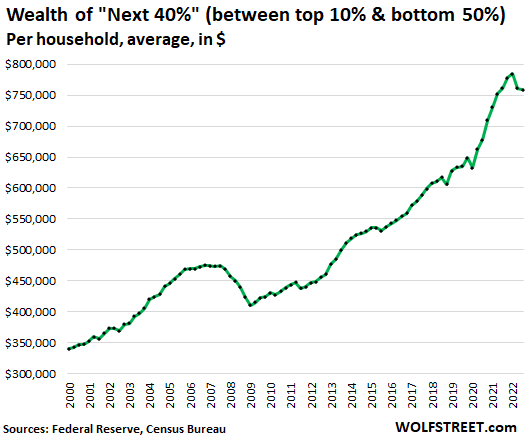... Mark Zandi, the chief economist at Moody’s Analytics, who said in a Twitter thread Sunday that he’d been asked “with regularity” whether it really mattered if the U.S. economy simply weakened or plunged into an official downturn.
“The answer is an emphatic YES,” Zandi said in a tweet.
“The recession debate is not a parlor game,” Zandi added. “There have been 12 recessions since WWII, lasting 10 months on average, with a peak-to-trough decline in real GDP of almost 3%, and given the current size of the labor force we would lose about 4 million jobs, pushing unemployment to 6%.”
The pain of that would be most acutely felt by low-income people, who could be set back years financially since their savings have dwindled, Zandi noted. Already, credit-card debt balances among lower-income people have surpassed their pre-pandemic levels.
...
“Once you get into a recession and things are going negative and we’re backtracking, it’s hard to know how that all plays out,” Zandi told MarketWatch. “Maybe it will be mild, but things start breaking when revenues start falling and businesses start going bankrupt and people start defaulting on their mortgages. Things can take a life of their own.”
‘The recession debate is not a parlor game’: A downturn would hit low-income people the hardest, says Moody’s Zandi
Mark Zandi, chief economist at Moody’s Analytics, says the Fed must 'be careful not to overdo the monetary tightening and push the economy into recession.'

